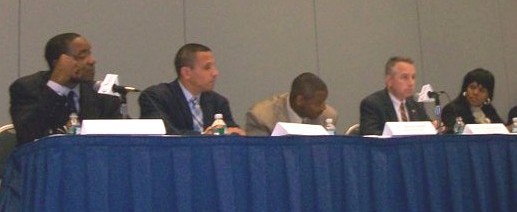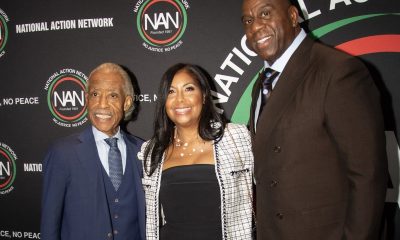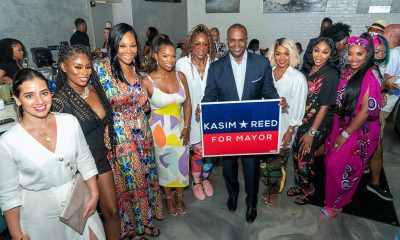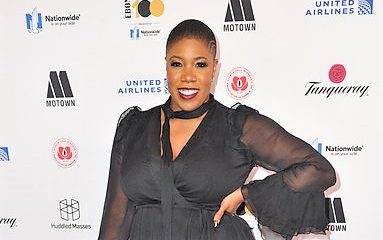Political Science
Preventing Youth Crime
A Congressional Black Caucus panel focused on measures and strategies that individuals and organizations can implement to address the symptoms of youth violence.
By Christopher Windham
Vincent “Zito” Palmer knows first hand the pitfalls of the gang life. Palmer, 22, says selling drugs and committing crimes were a way life for him growing up in Southeast Washington, D.C.
At the age of 10, Palmer says he began committing crimes to survive. “My hood was the hardest,” he says. “We had to make a way for ourselves.”
An arrest for burglary and the birth of his daughter caused Palmer in recent years to change course, opting to become a positive mentor to other struggling neighborhood youth and elsewhere.
When counseling troubled youth, Palmer says he asks the individual to envision his or her future in a gang. Then, Palmer would ask the youth if that’s a desirable lifestyle to continue with.
“I tell the youth how it is,” he says. “I tell them how I grew up. I grew up off of nothing. I had that same attitude.”
By tapping ex-offenders to mentor troubled youth, gang prevention advocates are hoping to add instant “street-cred” to the message. The strategy was among several possible methods of preventing youth crime discussed by experts at the recent Congressional Black Caucus Legislative Conference.
In several sessions held at conference, now in its 40th year, panelists and attendees discussed the successes and failures of government, schools and parents in encouraging education over gangs and violence with young people.
Palmer was a member of a panel hosted by Chicago Congressman Bobby Rush, D-IL, whose 1st District, which covers Chicago’s Southside and South Suburbs, has been ravished by gang killings in recent years. The panel focused on measures and strategies that individuals and organizations can implement to address the symptoms of youth violence.
On the panel, Palmer offered insight into the mindset of the today’s troubled inner city youth.
“They don’t want too much,” he says. “They just want the help. But they don’t want to show their friend they want the help. I had to grow up out of that thinking.”
Palmer was joined on the panel by former NFL linebacker Derrick Brooks; Ron Huberman, CEO of the Chicago Public Schools; former NBA player and current head basketball coach at Florida International University Isaiah Thomas, and Jeff Slowikowski of the U.S. Justice Department’s Office of Juvenile Justice and Delinquency Programs.
Slowikowski said a positive role model in a child’s life is one of the most important measures that could prevent incarceration and violent behavior.
“The most prudent thing is having a caring adult to really take the time out and help a child,” he said. “It could be a teacher, sports coach, a Boys & Girls Club or the Big Brothers/Sisters program.”
Some panelists and attendees called on the Obama Administration to do more to investigate the problem of inner city youth violence. Congressman Rush fiercely urged President Obama to create a task force that examines the issue.
“We are trying to get some action out of the White House,” Rush said. “He’s [President Obama] the single most important person we can employ to solve this problem today.”
Thomas, a Chicago native, escaped drugs, gangs and crime on the city’s West Side to become one of the NBA’s all-time greats. Today, Thomas frequently talks to inner city youth about the importance of achievement, education and goal setting. At the panel, Thomas pushed for more concrete plans to eradicate youth violence and it’s the contributing factors.
“What’s the mission?” Thomas asked. “That’s my question. I’m not the answer, but I’ll be a solider for you.”
Another session at the CBC Legislative Conference, held this year at the Washington Convention Center, addressed the benefits of passing the pending Youth PROMISE Act, which would distribute funds to organizations with effective programs that address juvenile delinquency and gang activity.
On the panel, non-profit administrators and youth outreach experts discussed how organizations can implement such programs. Gang/youth crime prevention organizations’ budgets have been slashed in recent years due to the recession. The new Congressional legislation, which was sponsored by Congressman Bobby Scott, D-VA, would allocate $1.6 million to anti-crime groups.











